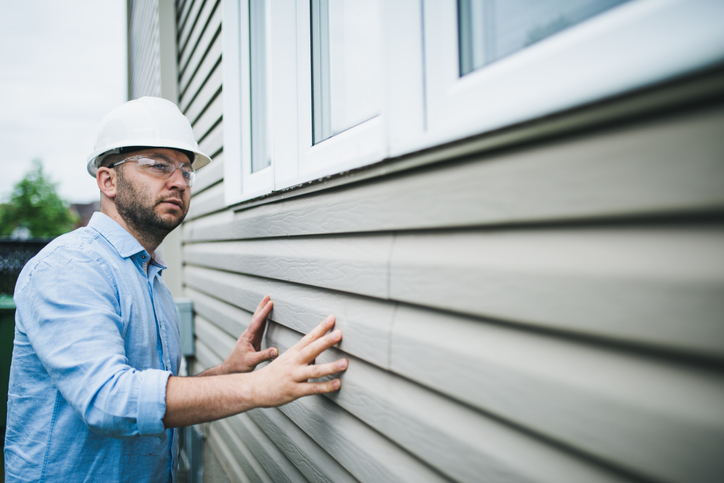9.18.23
Can New Siding Improve Your Home’s Value?

What to consider when replacing siding, including ROI.
Siding is one of a home’s most important features, both to protect from the elements and provide aesthetics. With most siding having a lifespan of decades, many homeowners never have to think about replacing it. People often move before siding needs to be replaced. For example, homeowners in Kalamazoo, Mich., stay in their homes for 12 years on average, according to the National Association of Realtors. If your home’s siding is showing wear from weather or age, you might be wondering if new siding could improve your home’s value. Keep reading for the return on investment (ROI) on siding and other factors to consider.
How does new siding affect the value of my home?
Replacing, updating, or improving the siding on your home can do a lot to improve its value, both financially and to prospective buyers. These improvements can include:
- Improved energy efficiency: Certain types of siding (vinyl siding in particular) can improve the energy efficiency of your home, allowing for lower energy bills (as well as a higher perceived home value to buyers)
- Curb appeal: By simply making your home more visually appealing, you can improve its worth to potential buyers or realtors.
- Lowered maintenance costs: In many cases, replacing or improving the siding on your home can lessen the need for other, more costly repairs or renovations down the road.
Questions to Ask When Looking For New Siding
What’s the potential ROI on my siding?
A primary question many homeowners have is: Does new siding add value to a house? The experts at Remodeling by JLC report that average cost to replace vinyl siding in our region is $19,008. The average resale value of new vinyl siding is $13,096, which equals an ROI of 68.9%.
ROI varies by material but in all cases, the payback when a homeowner sells is nearly always less than the cost of siding.
In what condition is your siding?
The primary purpose of siding is to keep rain, snow, ice and wind off the more easily damaged materials of your home. If your siding is damaged or failing to point where moisture can seep in between it and the sheathing or framing, rot and mold can become serious problems.
Another problem with damaged siding is that pests can get in more easily. Insects, mice, woodpeckers, bats, birds, bees and more can make themselves nice and cozy where siding no longer functions properly.
Sometimes older siding simply needs too much maintenance. Loose or missing pieces or extensive damage from pests, cracking and warping are signs that it’s time to replace rather than repair your home’s siding.
How long will you be in your home?
You don’t have to replace siding with the same material that’s currently on your home. If you plan to stay in your home for a long time, it might be worth spending more on brick that can last up to 100 years or stucco that can last 80 years—both materials have low annual maintenance costs compared to other materials.
What material are you using for your siding?
Siding is also a great way to improve a home’s look. In addition to vinyl, brick and stucco other materials—or combinations of materials can be used. Steel siding, fiber cement, wood siding, aluminum siding, and stone are more options that can help transform a house into a dream home.
How does your home appear to prospective buyers?
In addition to considering the ROI for siding, you need to consider your home’s curb appeal if you’re planning to sell. REALTOR Magazine reports that homes with attractive exteriors sell for 7% more on average than comparable homes. Curb appeal can help a home sell faster, too.
How will you finance your new siding?
Siding is a big-ticket item whether you choose materials that are geared for the budget-conscious or those in the mid-range and high-end price tiers. One way many homeowners finance siding improvements is with a Consumers home equity loan. Check out Consumers’ limited-time promotions with low introductory rates.
All loans subject to approval. Rates, terms, and conditions are subject to change and may vary based on credit worthiness, qualifications, and collateral conditions. Federally insured by NCUA


